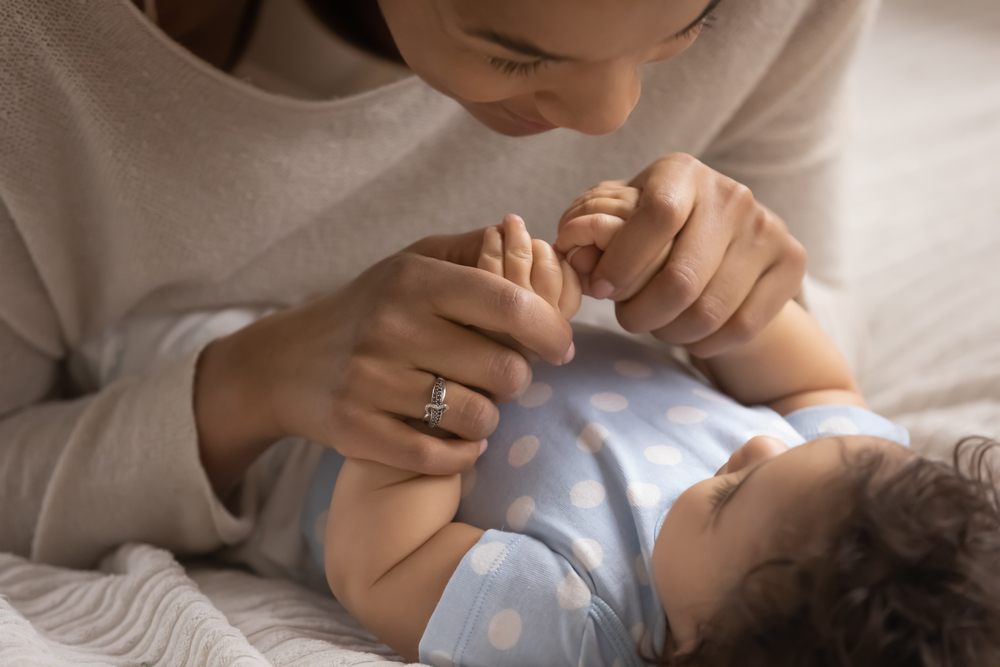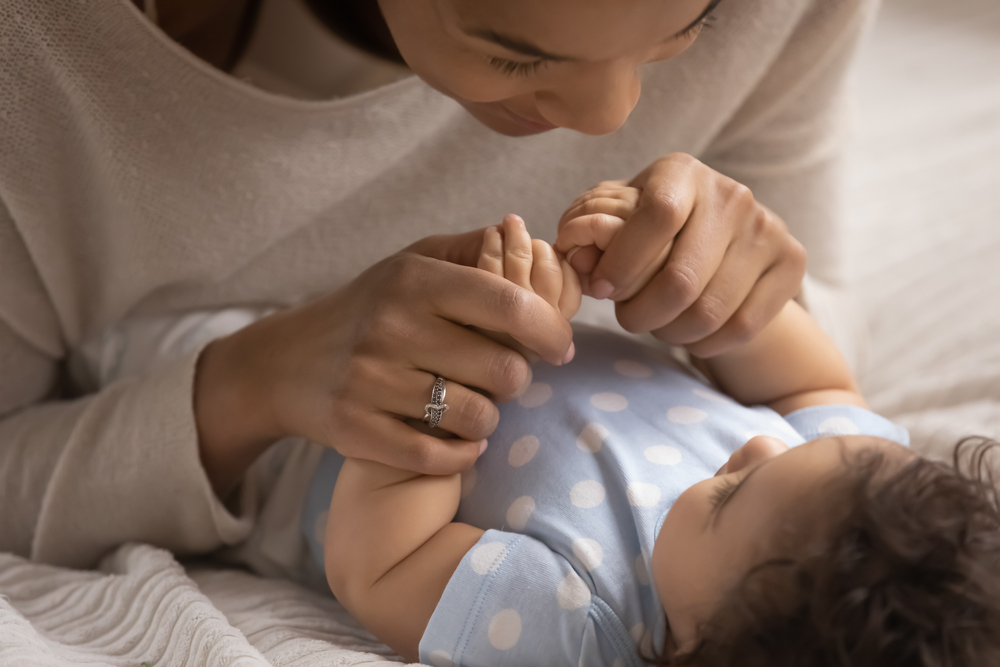
This article was originally published on February 7, 2022.
When I noticed that our 14-year-old son was drinking more water than usual, I commented to my husband that the sudden thirst could be a sign of diabetes. We are in the midst of a heat wave, he countered. A few days later our son seemed unusually tired and I brought up the possibility of diabetes again. Our son’s summer days were filled with sports and building playsets, my husband replied.
After my son told me he had been on the toilet all night, I finally called his pediatrician. As it turned out, his blood sugar levels were dangerously high. Already thin, he had lost 11 kilograms in three months, despite eating more than usual. When we headed to Children’s ER, I told the pediatric nurse that I suspected diabetes, but I didn’t call because my husband kept offering logical explanations. “A mother’s bowels are always straight,” said the nurse.
Is maternal instinct real?
But is there such a thing as maternal instinct? Not exactly, scientists say. It’s true that while pregnant, nursing and caring for a new baby, mothers go through hormonal changes that prepare them to care, says Helena Rutherford, a researcher at the Yale School of Medicine’s Child Study Center. These hormones, including oxytocin, or the “love” hormone, promote bonding between baby and mother.
And after birth, mothers are aided by the baby’s cues, rather than simply relying on an innate sense of their child’s needs. So new moms don’t necessarily have all the answers right away.
“It’s a process. It’s not a switch—I don’t think the science supports the existence of a maternal instinct,” says anthropologist Sarah Blaffer Hrdy, who has authored books on family bonding, including Mothers and others.
Read more: Crocodiles are particularly good mothers
Mom Brain
The brain undergoes significant transformations during pregnancy, including structural changes that can persist for up to six years afterward, says Elselin Hoekzema, a neuroscientist at Leiden University in the Netherlands. She and her colleagues found that the brains of pregnant mothers experience a reduction in gray matter volume, as reported in a 2016 study. Nature Neurology study, which may be the body’s way of preparing them to care for babies.
Adolescence also involves a significant reduction in gray matter, which is driven by some of the same hormones that also increase during pregnancy, Hoekzema wrote. In teenage brains, neural networks are fine-tuned to allow for emotional, social and cognitive development.
And among pregnant women, scientists observe the most obvious changes in the areas of the brain associated with social processes; this may represent a specialization in the brain that allows for the upcoming transition to motherhood, Hoekzema noted.
It’s possible that the more volume a woman loses in a key region of the brain’s reward circuit, the more strongly that region responds after seeing her newborn, according to a 2020 study. Psychoneuroendocrinology a paper Hoekzema co-authored.
These changes during pregnancy can help the mother care for her baby, a phenomenon also seen in other mammals. For example, mother rats become better at catching crickets. As for humans, these adaptations enable important maternal skills, such as recognizing an infant’s needs or spotting an external threat.
Maternal hormones and the relation to maternal instinct
Hormones associated with pregnancy and caregiving, which certainly seem to be the source of what many would call a maternal instinct, can also increase in individuals other than the child’s mother. While it’s widely known that breastfeeding mothers’ bodies produce oxytocin, which has a calming effect, fathers, adoptive parents, grandparents and other caregivers also undergo biological changes due to spending time with children, says Rutherford of Child Study Center.
In addition to breastfeeding, carrying a baby next to your body (aka kangaroo care) also increases oxytocin levels. “It’s a really powerful hormone,” says Rutherford. “My real gut feeling is that you don’t have to go through pregnancy” to tune in to your baby’s needs and create powerful bonds, she says. “The motivation to care is enough.”
From an evolutionary perspective, mothers served as caregivers, protectors and nurturers, she says. Mothers develop an increased concern for the well-being of their children and pay special attention to them, Rutherford says, which helps the species survive.
But more recent evidence allows for more nuance: Researchers have noticed that during the first six months of their child’s life, both new mothers and fathers experience increased levels of oxytocin. Moreover, parents do not seem to show any difference in oxytocin levels, as shown in a 2010 study in Biological Psychiatry. Research also suggests that the source of oxytocin elevations may vary between men and women; men can experience a rise in the hormone through high levels of stimulating contact, while women can experience it through very gentle touch.
Gay fathers’ brains are also thought to show similar responses to their babies compared to heterosexual parents, according to research published in PNAS in 2014. The more time spent with the baby, the researchers found, the greater the connection between emotional and cognitive structures. Likewise, foster mothers’ oxytocin levels increase in response to infant care, similar to that of biological mothers, as reported in 2013. Child development paper.
It takes a village
Humans did not evolve in nuclear families, Hrdy, the anthropologist, points out, but rather in extended families. today, infants can form attachments to about five individuals except for their mother, says Hrdy, who co-authored a chapter on the subject in the book Evolutionary perspectives on early childhood.
She uses the term allomothers to refer to aunts, uncles, grandparents, and older siblings who help care for young children. Hello means “different from” in Greek. Early in human history, postmenopausal women gathered more food for the family than mothers capable of giving birth and played a critical supporting role in family survival. Access to a social safety net still allows mothers to attend more closely to their children’s needs, although this scenario is more often in wealthier families.
At worst, infanticide can result from a lack of such support, she says, and can explain why women have abandoned their babies through history. She offers similar motivation for why the behavior continued in modern times. After all, parenting can be extremely challenging in itself. Rutherford says she would like to see society’s perception of motherhood “move away from the idea that motherhood is all joy and rainbows. It’s cognitively demanding, emotionally demanding. It’s as stressful as it is joyful.”
A woman’s level of “maternal instinct”—if such a thing exists—really depends on how much help they have with parenting, Rutherford says, along with how they were raised, their knowledge of caregiving, and how easy or difficult their pregnancy and birth experiences.
In general, researchers seem to agree that some parents, regardless of gender, are more aware of their children’s moods and health fluctuations than others. What passes for maternal instinct may actually be the result of a combination of motivation and quality time spent with their children—another reason why some believe maternal instinct is a myth.
But “how uniquely maternal or female that is, we don’t really know,” Hrdy says, as more research is underway. “It’s so early.”

